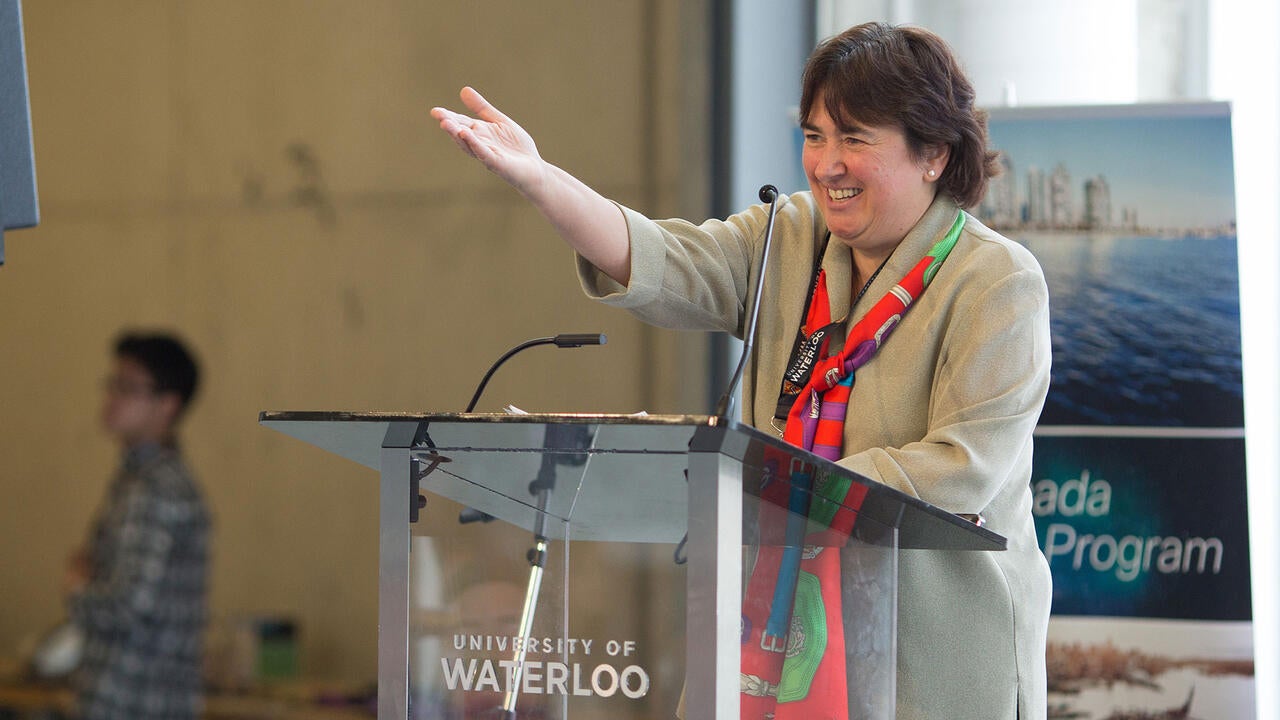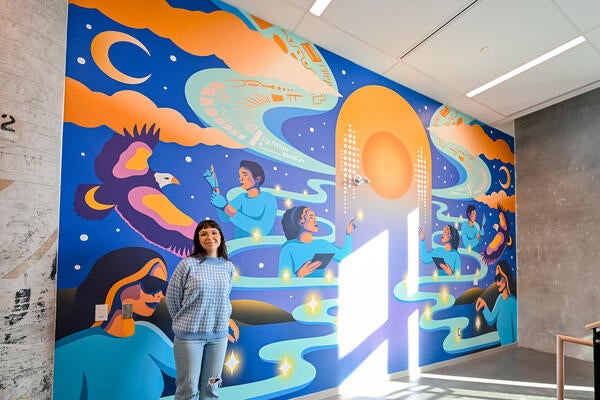
Cisco and the University of Waterloo partner to advance 5G technology
5G set to improve wireless service and bring new capabilities to cellular networks.

5G set to improve wireless service and bring new capabilities to cellular networks.
By Faculty of Engineering
A new collaboration between the University of Waterloo and Cisco Canada will help advance research in the area of 5G technology.
The collaboration has created a Cisco Research Chair in 5G systems, a position dedicated to exploring ways to improve wireless technology.
“As the impact of wireless technology continues to expand, it’s imperative that we understand the capabilities of 5G technology and what it will mean for the world,” said Feridun Hamdullahpur, president and vice-chancellor at Waterloo. “Our work with an industry leader on this technology will help us understand the wider impacts of this technology and how it will disrupt the way we live.”
5G will enable faster data transfer, reduced latency for better wireless service, and bring a host of new capabilities to cellular networks. The technology will help accelerate the Internet of Things, enable autonomous guided vehicles, deliver emerging virtual reality technologies, and more.
Cisco is providing $1 million to the  University over the next five years to establish the Cisco Research Chair in 5G Systems. The chair is held by Catherine Rosenberg, a Professor in Electrical and Computer Engineering and the Canada Research Chair in the Future Internet. Professor Rosenberg will collaborate with colleagues and Cisco researchers to investigate the opportunities 5G provides, as well as test and develop innovation for Cisco’s wireless networking portfolio.
University over the next five years to establish the Cisco Research Chair in 5G Systems. The chair is held by Catherine Rosenberg, a Professor in Electrical and Computer Engineering and the Canada Research Chair in the Future Internet. Professor Rosenberg will collaborate with colleagues and Cisco researchers to investigate the opportunities 5G provides, as well as test and develop innovation for Cisco’s wireless networking portfolio.
“We are generating increasing amounts of wireless traffic as our applications grow more bandwidth hungry,” said Rosenberg. “5G will deliver better service to fixed and highly mobile users and scale to provide connectivity to millions of things. I believe this chair is an opportunity to generate exciting collaborative and multidisciplinary research on 5G and I am delighted to work with Cisco, a world leader in networking.”
“One of our imperatives is to invest in initiatives that drive innovation for Cisco and increase Canada’s competitiveness”, said Rola Dagher, president, Cisco Canada.
“This Chair, and our long-standing relationship with the University of Waterloo, are representative of our mutual focus on disruptive technologies that have the potential to help shape Cisco’s strategy but also to bolster Canada’s stature in global technology R&D and entrepreneurship. We are excited to further evolve our relationship with Waterloo and look forward to increased collaboration.”

In addition to the $1 million in funding, Cisco’s support includes:
• $500,000 cash contribution to the Global Entrepreneurship and Disruptive Innovation (GEDI) initiative. GEDI is a new model of industry and academic collaboration that connects partners with research, startups and talent.
• $100,000 cash contribution to the Problem Lab, established to create innovations of greater economic and social consequence. The Problem Lab assists students with the first-step of entrepreneurial innovation—the identification and analysis of important problems. Students from the Problem Lab will work closely with Cisco’s Toronto Innovation Centre to develop an understanding of Cisco’s customers’ most significant business challenges.
• Cisco Spark Collaboration technology that will help enable interactive collaboration between the University, campus partners, entrepreneurs and global experts, to drive innovation, regardless of location.

Read more
How Doug Kavanagh’s software engineering degree laid the foundation for a thriving career in patient care

Read more
Upside Robotics secures new funding to accelerate the future of sustainable farming

Read more
Many Hearts, One Mind by Indigenous artist Alanah Jewell celebrates the act of creation shared by the Land and innovators in our community
The University of Waterloo acknowledges that much of our work takes place on the traditional territory of the Neutral, Anishinaabeg, and Haudenosaunee peoples. Our main campus is situated on the Haldimand Tract, the land granted to the Six Nations that includes six miles on each side of the Grand River. Our active work toward reconciliation takes place across our campuses through research, learning, teaching, and community building, and is co-ordinated within the Office of Indigenous Relations.